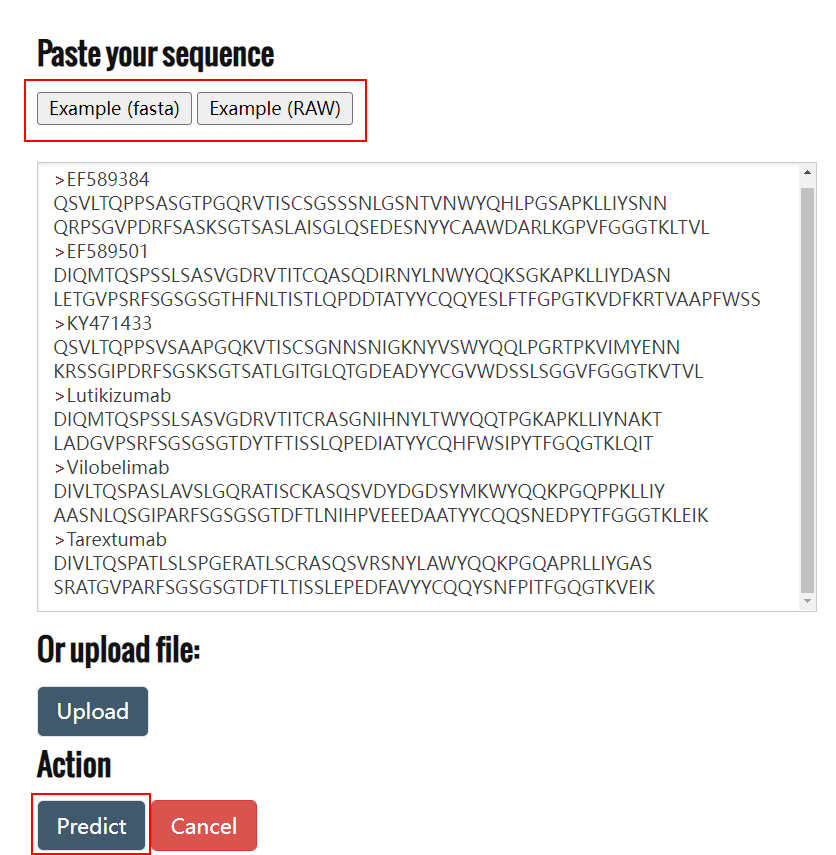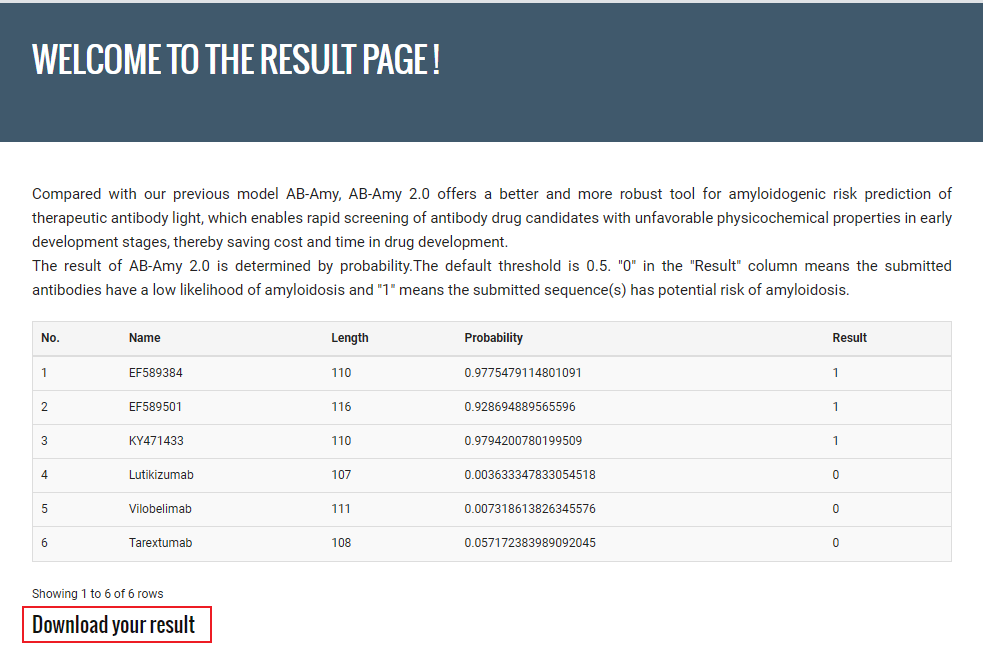Background
In recent years, several computational tools have been developed for amyloidogenic prediction, offering valuable assistance in reducing experimental costs. However, when applied to long sequences, these calculation tools exhibit a high false positive rate and yield unsatisfactory results. This limitation primarily stems from the fact that disease-associated amyloid proteins contain amyloid regions exceeding 15 residues in length. Empirical evidence demonstrates that deep protein language models (PLMs) can generate meaningful representations (embeddings), significantly enhancing performance across various downstream tasks. Expanding upon our previously published AB-Amy model, we aimed to investigate the efficacy of different language models in predicting the risk of light amyloidosis and proposed an enhanced version called AB-Amy 2.0.
In this study, we successfully present an advanced model, called AB-Amy 2.0, to predict the amyloidogenic risk of therapeutic antibody light chains. The model employs protein pretrained language model for sequence feature extraction, enhancing the predict precision with AUC of 0.9798. Protein language models have been extensively trained on protein sequences, enabling them to extract crucial information efficiently yet effectively. Notably, the embeddings generated by PLMs have consistently demonstrated superior performance compared to AB-Amy, which trained on DPC. It provides evidence that the embeddings derived from PLMs have demonstrate competitive results when compared to traditional features. This underscores the strength and efficacy of utilizing PLMs' embeddings for amyloidogenic risk prediction task. compared with our previous model AB-Amy, AB-Amy 2.0 offers a better and more robust tool for amyloidogenic risk prediction of therapeutic antibody light chain that achieved the ACC and AUC of 92.75% and 0.9798 on independent test dataset, respectively.
How does the AB-Amy 2.0 work?
Web server guide
- In "Submit" page, you can paste the VL sequence of antibodies in the textarea or upload a file in Fasta or RAW format. Examples can be loaded by clicking the "Example(fasta)" or "Example(RAW)".
- Click "Predict" to submit your job.

Please wait several seconds and the results will be dispalyed in a table. You can click the "Download the results" to save your results"

- Number: the serial number of the query sequence;
- Name: the ID of the query sequence;
- Length: the full length of the query sequence;
- Probability: this column represents the probability of the risk of amyloidosis;the antibody will be predicted has high risk of amyloidosis if the probability is 0.5 or higher;
- Result: this column shows the prediction result.“1” in the “Result” column denotes that the submitted light chain exhibits a high risk of amyloidosis and should be excluded from the development pipeline.
If you find any bug or question in the AB-Amy 2.0 suit, please let us know. Any other problems or questions, do not hesitate to contact Prof. Jian Huang (hj@uestc.edu.cn). We appreciate your feedback very much.
